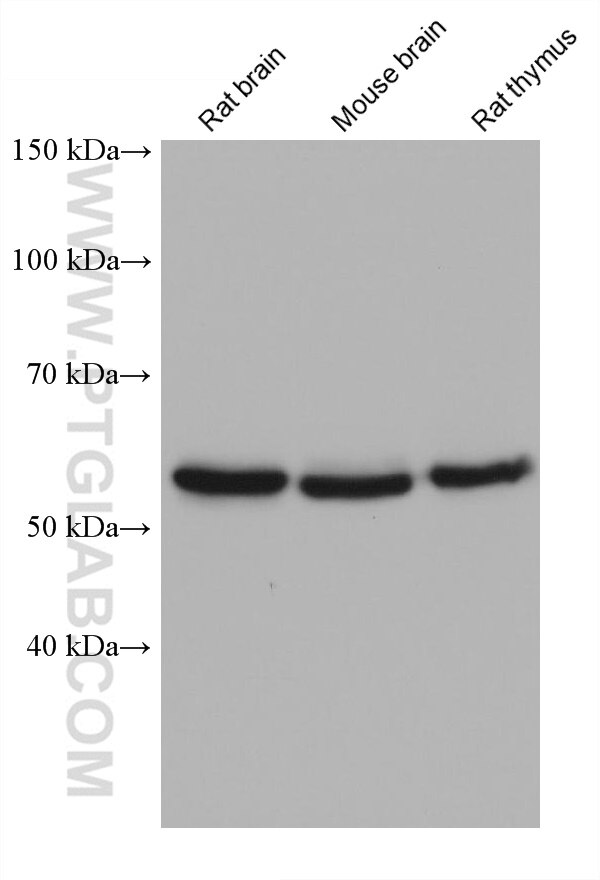Validation Data Gallery
Tested Applications
| Positive WB detected in | rat brain tissue, mouse brain tissue, rat thymus tissue |
Recommended dilution
| Application | Dilution |
|---|---|
| Western Blot (WB) | WB : 1:2000-1:10000 |
| It is recommended that this reagent should be titrated in each testing system to obtain optimal results. | |
| Sample-dependent, Check data in validation data gallery. | |
Product Information
68452-1-Ig targets CAMK4 in WB, ELISA applications and shows reactivity with Human, mouse, rat samples.
| Tested Reactivity | Human, mouse, rat |
| Host / Isotype | Mouse / IgG1 |
| Class | Monoclonal |
| Type | Antibody |
| Immunogen | CAMK4 fusion protein Ag33332 相同性解析による交差性が予測される生物種 |
| Full Name | calcium/calmodulin-dependent protein kinase IV |
| Calculated molecular weight | 473 aa, 52 kDa |
| Observed molecular weight | 56-65 kDa |
| GenBank accession number | BC025687 |
| Gene Symbol | CAMK4 |
| Gene ID (NCBI) | 814 |
| RRID | AB_3085164 |
| Conjugate | Unconjugated |
| Form | Liquid |
| Purification Method | Protein G purification |
| UNIPROT ID | Q16566 |
| Storage Buffer | PBS with 0.02% sodium azide and 50% glycerol , pH 7.3 |
| Storage Conditions | Store at -20°C. Stable for one year after shipment. Aliquoting is unnecessary for -20oC storage. |
Background Information
CaMK4 (Calcium/calmodulin-dependent protein kinase IV) is a multifunctional serine/threonine kinase that regulates gene expression by activating transcription factors in a wide range of immune cells including T cells and antigen-presenting cells. The function of CaMK4 is suggested to be abnormal mainly in systemic lupus erythematosus (SLE), which is characterized by autoantibody production, immune complex formation, and immune dysregulation (PMID: 29252071). CaMKIV can translocate between the nucleus and cytoplasm (PMID: 21301225)
Protocols
| Product Specific Protocols | |
|---|---|
| WB protocol for CAMK4 antibody 68452-1-Ig | Download protocol |
| Standard Protocols | |
|---|---|
| Click here to view our Standard Protocols |
